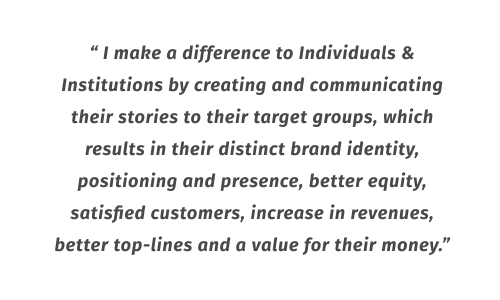
Introduction
In today’s rapidly changing world, the youth face unique challenges as they step into the real world. The transition from adolescence to adulthood can be daunting, with uncertainties and obstacles aplenty. It is crucial to equip today’s youth with the necessary life skills to navigate these challenges successfully.
The Importance of Essential Skills Development
Recognizing the changing landscape
- Impact of technological advancements: The proliferation of technology has transformed various aspects of our lives, including the job market. As industries evolve, new skills become essential for success and adaptability.
- Evolving job market demands: With globalization and automation, the job market is becoming increasingly competitive. Staying ahead requires continuous learning and the ability to meet diverse job requirements.
The role of essential skills
- Defined essential skills for successful adulthood: These skills encompass a range of abilities that are essential for personal and professional growth. They go beyond the traditional academic curriculum and equip individuals with the tools needed to thrive in the real world.
- Relevance in fostering personal and professional growth: Essential skills empower individuals to communicate effectively, think critically, adapt to change, collaborate with others, manage time efficiently, and build strong relationships. These skills lay the foundation for lifelong learning and success in various spheres of life.
Foundational Competencies for Real-World Readiness.
Communication Skills
- Verbal proficiency: A strong command of language enables effective expression and understanding in various settings.
- Effective written communication: Being able to articulate thoughts clearly and concisely through writing is crucial for success in academic, professional, and personal domains.
- Active listening: Actively listening to others fosters understanding and helps build meaningful connections.
Critical Thinking and Problem-Solving
- Analytical mindset: Cultivating an analytical mindset enables individuals to approach problems with clarity and logic, leading to sound decision-making.
- Decision-making abilities: Developing the capacity to make well-informed decisions empowers individuals to tackle challenges with confidence.
- Innovative problem-solving techniques: Encouraging creativity and unconventional thinking helps individuals find unique solutions to complex problems.
Adaptability and Flexibility
- Embracing change: The ability to embrace change and navigate through uncertain situations is essential in today’s dynamic world.
- Resilience in the face of adversity: Teaching individuals how to bounce back from setbacks and overcome obstacles builds resilience and fosters personal growth.
- Keeping up with dynamic environments: Equipping individuals with the skills to adapt quickly to evolving environments, enables them to thrive in an ever-changing world.
Collaboration and Teamwork
- Building strong interpersonal relationships: Cultivating interpersonal skills fosters meaningful connections and promotes effective collaboration.
- Nurturing a cooperative mindset: Encouraging teamwork and cooperation helps individuals work harmoniously in diverse groups.
- Leveraging collective intelligence: Harnessing the power of collective intelligence leads to innovative ideas and successful outcomes.
Time Management and Organization
- Efficiently handling responsibilities: Developing the ability to prioritize tasks and manage time effectively leads to increased productivity and goal achievement.
- Setting goals and priorities: Knowing how to set and work towards achievable goals enhances personal growth and success.
- Managing deadlines effectively: Being able to plan and adhere to deadlines ensures timely completion of tasks, reducing stress and increasing efficiency.
Emotional Intelligence and Relationship-Building
- Understanding and managing emotions: Developing emotional intelligence enables individuals to understand and regulate their emotions, leading to better interpersonal relationships.
- Empathy and compassion: Being empathetic and compassionate towards others cultivates strong bonds and fosters a supportive community.
- Building enduring connections: Nurturing meaningful relationships with others creates a sense of belonging and provides a reliable support network.
Strategies for Equipping Youth with Essential Skills
Balancing traditional education and life skills
- Integrating essential skills into the curriculum: Schools and educational institutions can include essential skills development alongside traditional subject areas, ensuring a well-rounded education.
- Addressing gaps in education systems: Identifying and rectifying gaps in the education system ensures that essential life skills are not overlooked.
Mentoring and Role Models
- Importance of mentorship: Pairing youth with mentors who provide guidance, support, and valuable life lessons can significantly impact their development.
- Showcasing successful role models: Highlighting individuals who have successfully navigated challenges and developed essential skills can inspire and motivate the youth.
Experiential Learning Opportunities
- Internships and apprenticeships: Engaging youth in real-world, hands-on experiences through internships and apprenticeships allows them to apply and further develop essential skills.
- Hands-on projects and community involvement: Encouraging participation in hands-on projects and community service fosters the development of essential skills and a sense of social responsibility.
Utilizing Technology for Skills Development
Digital tools and platforms: The integration of digital tools and platforms enables accessible and engaging ways to develop essential skills.
Accessible online resources: The internet provides a vast array of resources, courses, and learning platforms that can facilitate skill development for youth regardless of their location or background.
Overcoming Challenges in Essential Skills Development
Identifying barriers to skill acquisition
- Lack of resources and support: Limited access to quality education, mentorship programs, and support networks can hinder the development of essential skills.
- Socio-economic disparities: Economic disparities may affect opportunities for skill development, highlighting the need to address these disparities.
Addressing societal biases and stereotypes
- Breaking gender and cultural barriers: Challenging gender and cultural stereotypes empowers all individuals to pursue and develop essential skills irrespective of their background.
- Promoting inclusivity in skill-building: Creating inclusive environments that value and embrace diversity fosters equitable access to skill-building opportunities for all.
The Role of Parents, Educators and Institutions
Parental involvement and support
- Encouragement and guidance: Providing emotional support and encouragement to youth throughout their skill development journey promotes confidence and resilience.
- Fostering independent thinking: Nurturing independent thinking in youth allows them to develop essential skills and make well-informed decisions.
Educators as facilitators
- Incorporating essential skills in teaching: Educators can integrate essential skills development into their teaching methodologies across various subject areas.
- Providing experiential learning opportunities: Offering practical, hands-on experiences within the classroom setting allows students to apply and refine essential skills.
Collaborations with Institutions and Organizations
- Public-private partnerships: Collaboration between educational institutions and private organizations can provide enhanced skill-building opportunities for youth.
- Enhanced skill-building initiatives: Working together, institutions and organizations can create targeted programs and initiatives to equip youth with the necessary skills for success.
Conclusion
Navigating the transition from youth to adulthood requires more than just academic knowledge. Equipping today’s youth with essential life skills is crucial for their personal and professional growth. By recognizing the changing landscape, focusing on foundational competencies, implementing effective strategies, and addressing challenges, we can empower the youth to thrive in the real world.

